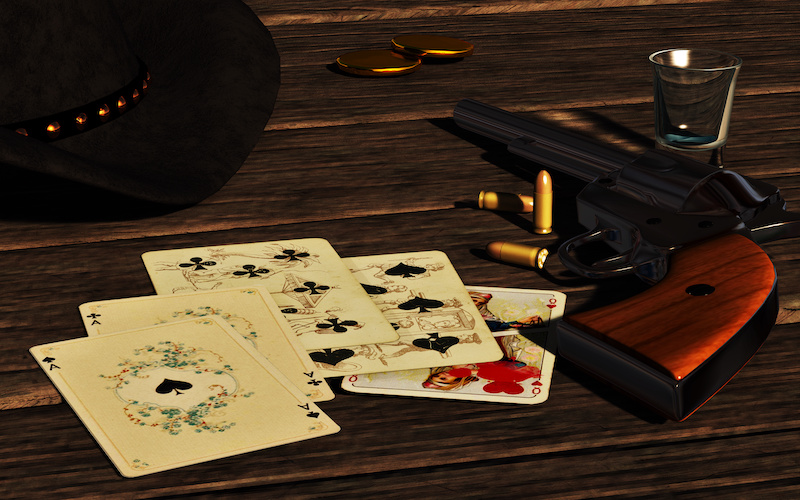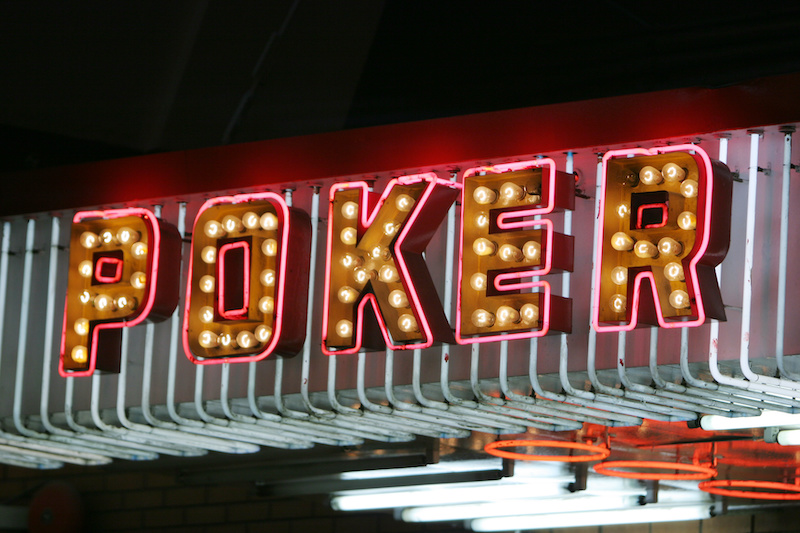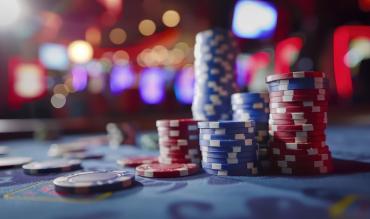When casino managers look over new table games, there are specifics they must see before offering the games to the public.
The game must be easy to learn and play. No one wants players to be intimidated and walk away. Empty tables earn no money.
Table layouts must be clean and clear, not cluttered and confusing. The game must be easy to deal. The house edge must hit a sweet spot between earning profit for the house and being so high it chases players away. Everyone must feel like they have a shot to win.
And managers must see enough appeal in a game that it's worth bumping another game off a casino floor.
That's particularly important in live casinos, where physical space is limited. Often, you'll see new table games get wider distribution in online casinos.
Still, many games come along every year that seem to fill the bill. Once they get their trial, either online or in live play, the public will decide if they have staying power.
Let's check out a few of the latest and greatest table games to look for in the coming year.
Knockout 52 (M&M Entertainment)
Most new table games are based either on poker or blackjack. Not Knockout 52. It's a match game that deals up to 52 cards to see if a card matches a denomination on one of 13 table spaces.
Lined up on the layout are 13 spaces marked in card denominations in order from Ace low at the players' right through King high on the left. Up to four rounds of 13 cards are dealt one at a time until one matches the marked space.
As soon as there's a match, or if 52 cards are dealt with no match, the hand ends. If an Ace is dealt on the first card, the hand stops without seeing any more cards. If it takes two-plus rounds of 13 cards plus a few more on the third round, then the hand ends on the third round.
Players have betting spaces with five options: Round 1, Round 2, Round 3, Round 4, or All the Way. If you bet on Round 3, you win if there is a match on the third round, or lose if the hand ends on rounds one or two or goes unto the fourth round.
Payoffs differ depending on round. A Round 1 winner pays at 1-2 odds, so if you bet $10, you win $5 in addition to keeping your wager. Winners pay 3-1 on Round 2, 10-1 on Round 3 and 30-1 on Round 4. If you bet on All the Way and four rounds are dealt with no matches, it pays a whopping 50-1.
That's in keeping with the chances of winning. In a single-deck game, a match will come on Round 1 an average of 64.3% of the time, with 23% ending on Round 2, 8.2% on Round 3, 2.9% on Round 4 and 1.6% going all the way with no match. Numbers are slightly different if more decks are added, but not by much.
Michael Shackelford at wizardofodds.com calculates the house edge is lowest if you stick with Round 1 bets despite the low payback. In single-deck games, he lists house edges at 3.5% on Round 1, 8.2% on Round 2, 9.9% on Round 3, 9.4% on Round 4, and an enormous 17.2% for the long shot on All the Way. Given an eight-deck game, edges starting at Round 1 are 3.1%, 8.6%, 11.1%, 11.3% and 20%.
Knockout 52 is easy to play and can be a fun diversion, but beware those house edges, especially for two or more rounds.
Dead Man's Hand Blackjack (Dunow Gaming)
A blackjack side bet, Dead Man's Hand is named for the hand Wild West legend Wild Bill Hickok is said to have held when he was shot to death in 1876 in Deadwood, in part of the Dakota Territory that became South Dakota.
While playing poker, Hickok supposedly held pairs of Aces and 8s when Jack McCall shot him in the back of the head. Whether he actually had that hand is open for discussion. No reports from the time include the cards, and reports from the next few decades differ on hand composition.
Nonetheless, it's a good piece of folklore. The blackjack bet plays into the Dead Man's Hand motif by paying off anytime you're dealt an Ace or an 8 in the first two cards. Bigger payoffs come for pairs of Aces or 8s, and drawing extra Aces and 8s after splitting those pairs.

Either an Ace or an 8 in the first two cards brings a 2-1 payoff. You get 4-1 with both an Ace and an 8.
Pairs can bring bigger rewards. Ace-Ace or 8-8 with no further dead man's cards after splitting pay 4-1, unless the dealer has a blackjack. Then your pair is a big payer at 50-1.
If you split Aces or 8s and wind up with one Ace-8 in the first two hands after splitting, you win 20-1. And if you wind up with two Ace-8s, it's worth a 100-1 bonanza.
The house edge decreases slightly with more decks. At wizardofodds.com, Shackelford lists edges of 4.98% with two decks, 4.63% with four, 4.51% with six or 4.45% with eight.
As with most side bets, all those edges are higher than the base game of blackjack, where basic strategy players face a house edge of less than 1%, with precise numbers depending on house rules.
If you're looking for the best percentage play, stick with the base game. Dead Man's Hand's attraction is for players willing to spot an extra edge for a shot at bigger one-hand payoffs.
Split'em Stud (House Way Gaming)
Based on seven-card stud poker, Split'em Stud has similarities to pai gow poker in that you split an initial hand in two. It also has a pay table that will look familiar to Mississippi Stud Poker players.
To start, players must make an ante. Each player then is dealt four cards, and three community cards are dealt face down in front of the dealer.
Next, it's decision time. You may either play or fold. If you fold, you lose your ante. If you play, you must make a bet equal to your ante.
Those who elect to play must then split their four cards into two two-card hands. Community cards are turned face up, and each two-card player hand is combined with the three community cards to make a five-card poker hand.
Payoffs are strictly according to a pay table. There is no dealer hand to beat.
Your best hand loses if it doesn't have at least a pair of 7s. It's a push and you get your money back on pairs of 7s through 10s. You're paid even money on a pair of Jacks or better, 2-1 on two pairs, 3-1 on three of a kind, 4-1 on a straight, 6-1 on flush, 10-1 on a full house, 40-1 on four of a kind, 100-1 on a straight flush and 500-1 on a royal flush.

With one exception, that's identical to the pay table on Mississippi Stud. The only difference is that pushes start on pairs of 6s on Mississippi Stud while Split'em Stud pushes start at pairs of 7s.
Split'em Stud also has bonus payoffs if you have winning combinations in your first four cards without the community cards. The bonus payoffs are the same as the basic pay table except there are no push hands and no full-house payoffs since it's impossible to build a full house in four cards.
In addition, there's an optional side bet on the seven-card hand formed by your four cards and the three community cards. Several pay tables are available. It's up to the host casino to choose which to offer. The table displayed at the House Way Gaming website pays 2-1 on three of a kind, 4-1 on straights, 6-1 on flushes, 10-1 on full houses, 25-1 on four of a kind, 50-1 on a straight flush, 250-1 on a royal flush, 1,000-1 on a six-card straight flush and 5,000-1 on a seven-card straight flush.
The manufacturer says the house edge is 4.49% on the main game and ranges from 2.77% to 10.05% on the seven-card wager depending on which pay table is used.
The house edge is higher than some other poker-based table games such as Mississippi Stud and Three Card Poker. Split'em Stud does have some intrigue in the dual decision of whether to play or fold followed by splitting your four cards into two hands.


